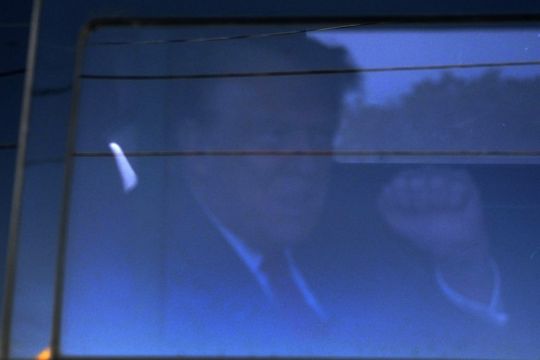Lawyers for Donald Trump urged a federal judge on Thursday to dismiss the classified documents case against him.
The former president’s team argued that the statute that underpins the bulk of the charges is unconstitutionally vague as applied to a former president.
Mr Trump looked on in the courtroom as US District Judge Aileen Cannon heard arguments over whether the case should proceed or whether, as Mr Trump’s lawyers hope, it is thrown out before ever reaching a jury — a rare action for a judge to take.

Ms Cannon asked probing questions of both sides and did not immediately rule on Mr Trump’s motion to dismiss the case, which accuses the presumptive 2024 Republican presidential nominee of hoarding classified documents at his Mar-a-Lago estate after he left the White House.
The judge told Mr Trump’s attorney that striking down a statute — as the defence is seeking — would be “quite an extraordinary step”.
She also pointedly noted to a prosecutor that no former president has ever been charged with mishandling classified documents.
Jay Bratt, a prosecutor with special counsel Jack Smith’s team, responded that there has never been another situation “remotely similar to this one”.
Mr Trump is accused of intentionally holding onto some of the nation’s most sensitive documents — only returning a fraction of them upon demand by the National Archives.
Prosecutors say he urged his lawyer to hide records and to lie to the FBI by saying he no longer was in possession of them.
He is also accused of enlisting staff to delete surveillance footage that would show boxes of documents being moved around the property.

At issue is a law that makes it a crime for an unauthorised person to wilfully retain national defence information.
That charge forms the basis of 32 of the 40 felony counts against Mr Trump in the case.
Defence lawyer Emil Bove said ambiguity in the statute permits what he called “selective” enforcement by the Justice Department, leading to Mr Trump being charged but enabling others to avoid prosecution.
Mr Bove said that includes President Joe Biden, the recent subject of a harshly critical report by special counsel Robert Hur on the president’s handling of classified information.
“The court’s obligation is to strike the statute and say ‘Congress, get it right,’” Mr Bove told Ms Cannon.
Mr Bratt disputed that the statute was unclear.
Mr Trump sat at the defence table at the federal court in Fort Pierce with his hands clasped, listening intently to the arguments.
Mr Smith, who brought the case, was also in the courtroom, but there was no visible interaction between the two men.

Later Thursday, Ms Cannon was expected to hear arguments on another motion to dismiss the case that centres on the Presidential Records Act.
Mr Trump’s lawyers say that the statute gave him the authority to designate the documents as personal and maintain possession of them after his presidency.
Mr Smith’s team has counted that the files Mr Trump is charged with possessing are presidential records, not personal ones and that the statute does not apply to classified and top-secret documents, like those kept at Mar-a-Lago.
The Presidential Records Act “does not exempt Trump from the criminal law, entitle him to unilaterally declare highly classified presidential records to be personal records, or shield him from criminal investigations — let alone allow him to obstruct a federal investigation with impunity,” prosecutors wrote in a court filing last week.
It is not surprising that defence lawyers are seeking dismissal of the case based on the Presidential Records Act given that the legal team has repeatedly invoked the statute since the FBI’s August 2022 search of Mar-a-Lago.

The law, enacted in 1978, requires presidents upon leaving office to transfer their presidential records to the US government for management — specifically, the National Archives and Records Administration — though they are permitted to retain personal records, including diaries and notes that are purely private and not prepared for government business.
Mr Trump’s lawyers have said that he designated as personal property the records he took with him to Mar-a-Lago, which prosecutors say included top-secret information and documents related to nuclear programs and the military capabilities of the US and foreign adversaries.
Ms Cannon has suggested in the past that she sees Mr Trump’s status as a former president as distinguishing him from others who have held onto classified records.
The hearing is the second this month in the case in Florida, one of four prosecutions Mr Trump confronts as he seeks to reclaim the White House this year.
Ms Cannon heard arguments on March 1 on when to set a trial date, but has not yet ruled.
Prosecutors have pressed the judge to set a date for this summer, while Trump’s lawyers are seeking to put it off until after the election.







